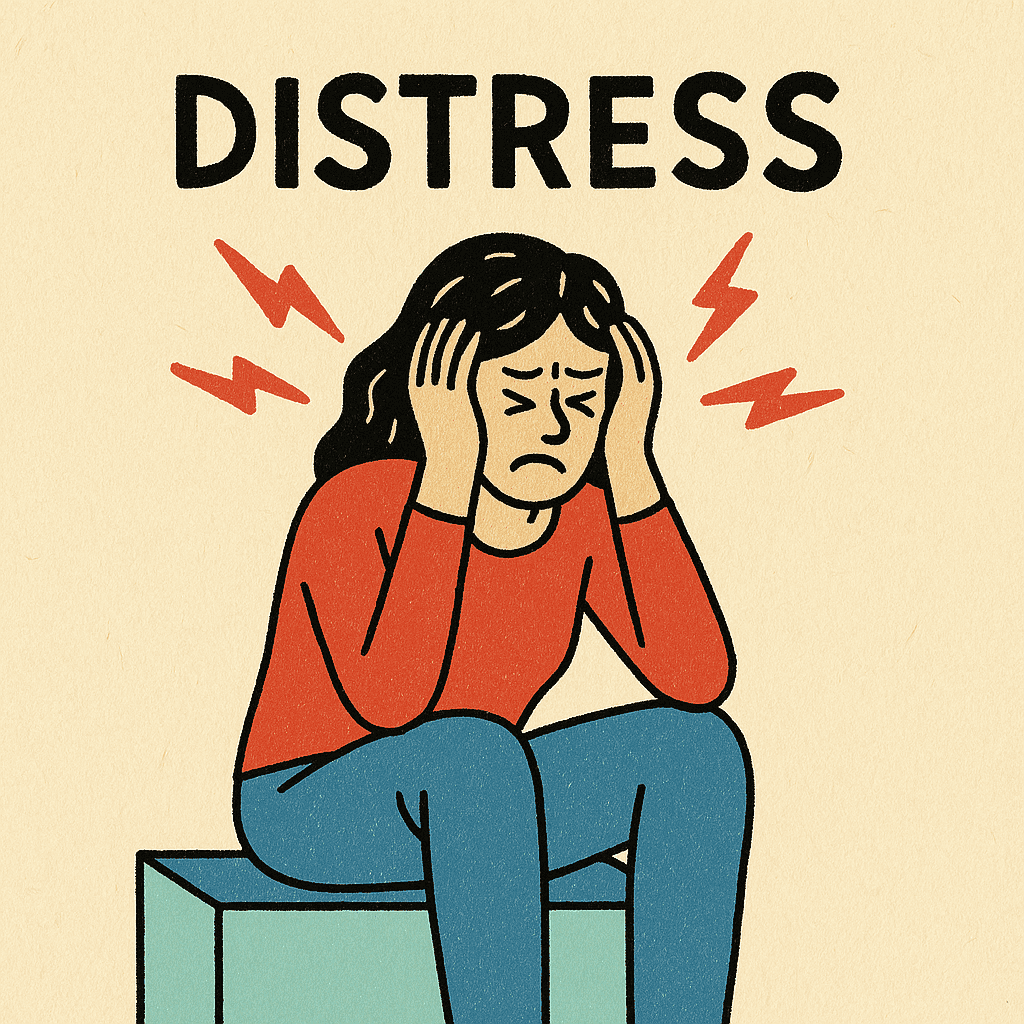Meaning
Distress means a state of extreme sorrow, pain, or suffering. It can refer to emotional, physical, or financial difficulties. As a verb, it means to cause someone to suffer or feel upset.
Grammar and Usage
- Part of speech: noun / verb
- Noun: describes a painful or difficult situation.
- in distress = in trouble or suffering
- Verb: means to cause pain, anxiety, or sorrow.
- distress someone = make someone feel worried or upset
Sentence structures:
- Noun: She was in great distress after the accident.
- Verb: The news distressed him deeply.
Common Phrases
- in distress – in trouble or suffering
- emotional distress – extreme emotional pain
- financial distress – serious money problems
- call of distress – signal asking for help (especially at sea or in emergencies)
- distress signal – an emergency alert for help
Collocations
- cause distress
- suffer distress
- relieve distress
- in emotional/physical distress
- distress call / distress signal
Examples
- The child was crying in distress after losing his mother in the crowd.
- Financial distress forced the company to close several branches.
- The distress call from the ship prompted an immediate rescue.
- Her face showed deep distress when she heard the bad news.
- The teacher was distressed by the student’s sudden disappearance.
- Volunteers worked to relieve the distress of families after the earthquake.
- He found it distressing to see animals being mistreated.
- The pilot sent out a distress signal before the plane disappeared.
- Seeing her friend in distress, she offered her full support.
- Many citizens were in emotional distress during the crisis.
Synonyms or Related
- suffering
- agony
- anguish
- misery
- grief
- hardship
- pain
Antonym
- comfort
- relief
- joy
- happiness
- ease
